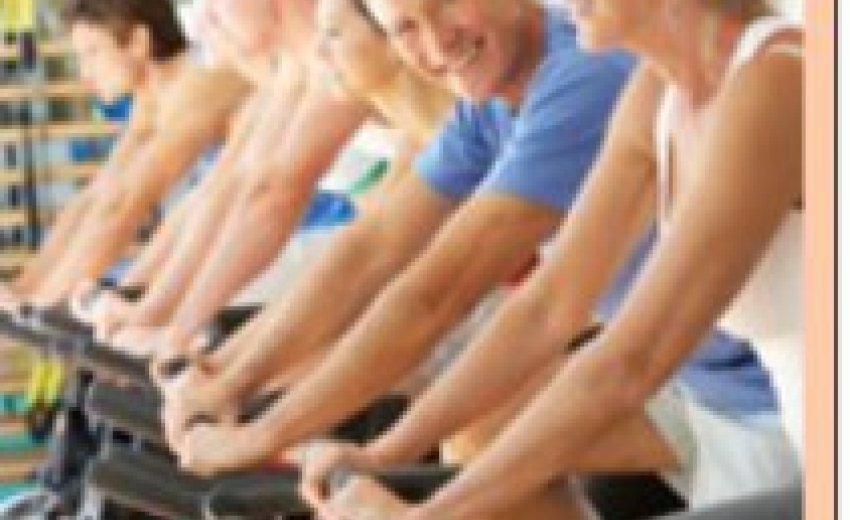How to Destress While Improving Your IQ & PQ ...
Become Healthier, Think Better and Quicker
with Improved Physical Brainpower
©2015 Health Realizations, Inc. Update
If you’ve been stalling on renewing your gym membership or are just having trouble finding motivation to get up off the couch after a long day at work, here’s some fodder for you to chew on: along with boosting your physical stamina, staying fit can boost your brainpower.
 For starters, exercise produces beneficial changes in your brain, that include:
For starters, exercise produces beneficial changes in your brain, that include:
- Encouraging the growth of new cells by increasing oxygen flow to your brain
- Boosting growth factors, such as brain-derived neurotrophic factor, which helps new nerve cells to survive
- Increasing neurotransmitters in your brain that play a role in cognition
There’s also evidence that shows physically fit people have higher IQs than those who are out of shape.
Staying Fit Leads to Higher IQ Scores
A study of over 1 million Swedish men in the military found that those in good physical shape had better scores on an IQ test, with the strongest association found for logical thinking and verbal comprehension.
"Being fit means that you also have good heart and lung capacity and that your brain gets plenty of oxygen," Michael Nilsson, professor at the Sahlgrenska Academy and chief physician at the Sahlgrenska University Hospital told ScienceDaily. "This may be one of the reasons why we can see a clear link with fitness, but not with muscular strength. We are also seeing that there are growth factors that are important."
Interestingly, the researchers’ results also showed that men who were fit at age 18 were more likely to go to college and later get more qualified jobs. Even in youth, when young adults aged 15 to 18 improved their physical fitness they also improved their cognitive performance, the researchers said.
Physical Education Boosts Students’ Grades
 For students, regular exercise is invaluable for keeping
grades up. In fact, at Naperville Central High School
outside of Chicago, educators are taking this knowledge
to heart and implementing physical education as the first
class of the day for kids who are struggling with grades.
They’ve also added exercise bikes and balls to
classrooms so that students can keep moving throughout
the day.
For students, regular exercise is invaluable for keeping
grades up. In fact, at Naperville Central High School
outside of Chicago, educators are taking this knowledge
to heart and implementing physical education as the first
class of the day for kids who are struggling with grades.
They’ve also added exercise bikes and balls to
classrooms so that students can keep moving throughout
the day.
Upon making this simple change, students’ nearly doubled reading scores and inceased math scores by a factor of 20!
Previous research by Dr. Charles Hillman at the University of Illinois has also shown that spending 30 minutes on a treadmill makes students up to 10 percent better at problem solving, ABC News reported.
Exercise Boosts Seniors’ Brains, Too
The brain-boosting effects of exercise are not limited to youth. On the contrary, older adults can also reap the mental benefits of a regular exercise program.
In one study, adults aged 50 to 79 who exercised had substantially lower rates of cognitive decline than those who were more sedentary. Likewise, women aged 60 to 63 who exercised moderately did better on brain function tests than those who exercised strenuously, which suggests that overdoing it might not be a good thing.
Research by Arthur Kramer of the University of Illinois also found that aerobic exercise builds gray and white matter in seniors’ brains, adding further support for the importance of physical activity at all ages.
Further, he states, “Walking 45 minutes three times a week for six months significantly improved mental ability of older adults with no dementia so even walking a few times a week may provide a noticeable benefit.
And according to the Franklin Institute, “Walking is especially good for your brain, because it increases blood circulation and the oxygen and glucose that reach your brain. Walking is not strenuous, so your leg muscles don't take up extra oxygen and glucose like they do during other forms of exercise. As you walk, you effectively oxygenate your brain. Maybe this is why walking can "clear your head" and help you to think better.”
An Added Mind Perk ... Stress Relief!
Stress has been called America's number one health problem, and the American Institute for Stress estimates that 75 to 90 percent of visits to the doctor are for stress-related problems.
And when your mind is stressed it’s nearly impossible to think on your feet. This is why having a reliable and effective form of stress relief is an essential part of your well-being, and as it turns out exercise is an excellent stress reduction tool.
Aside from strengthening your heart and lungs, two organs that can become physically negatively affected from too much stress, exercise is great for your mental health too. Exercising increases the levels of endorphins in your body, which stimulate your immune system, reduce stress and put you in a better mood.
Stretching should also be integrated with your exercise routine, as it will provide you with increased energy levels and an even greater sense of well-being. There are countless stretches for your body, but it takes just 15 of them to stretch 95 percent of your body, according to stretching expert and creator of the DVD Stretching "Toward a Healthier Life, Jacques Gauthier".
The human brain is a wonderful thing. It starts working the moment you are born, and never stops when you have sat for hours with all the blood stuck in your legs... or when you stand up to speak in public. Some politicians are proof of this fact.
Many complain about their looks, but no one of their brains. Yet we all secretly seek improvement.
We simply suggest NOT waiting a minute longer.
NOW is your time to get fit and give your body and mind the healthy gift of exercise.
If you're not sure what type of exercises would best suit you, feel free to contact us today. Also consider hiring a personal trainer. He or she can educate you on a variety of workout routines designed to meet your individual fitness goals on both mental and physical levels.
Sources
ScienceDailv.com
Proceedings of the National Academy of Sciences, vol. 106. no. 49 20906-20911
ABC News
Los Angeles Times
Wired.com
The Franklin Institute






